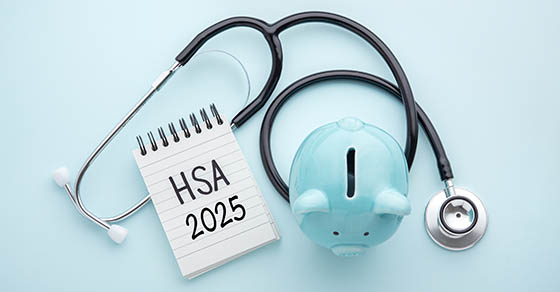The IRS has recently issued guidance on the 2025 inflation-adjusted amounts for Health Savings Accounts (HSAs). These adjustments, made annually based on inflation, are announced earlier than other inflation-adjusted amounts to allow employers adequate time to prepare for the upcoming year.
Fundamentals of HSAs
A Health Savings Account (HSA) is a trust established exclusively for covering the qualified medical expenses of its beneficiary. An HSA can only be created for an eligible individual covered under a high-deductible health plan (HDHP). Additionally, participants must not be enrolled in Medicare or have other health coverage, with exceptions including dental, vision, long-term care, accident, and specific disease insurance.
Contributions to an HSA within specified limits are tax-deductible above the line. These annual contribution limits, along with the deductible and out-of-pocket expenses under the tax code, are adjusted annually for inflation.
Inflation Adjustments for 2025
In Revenue Procedure 2024-25, the IRS announced the 2025 inflation-adjusted figures for HSA contributions:
- Annual Contribution Limits: For 2025, the annual contribution limit is $4,300 for individuals with self-only coverage under an HDHP, and $8,550 for individuals with family coverage. These limits have increased from $4,150 and $8,300, respectively, in 2024.
- Catch-Up Contributions: For both 2024 and 2025, individuals aged 55 or older by the end of the tax year can make an additional $1,000 catch-up contribution.
- High-Deductible Health Plan Limits: For 2025, an HDHP must have an annual deductible of at least $1,650 for self-only coverage or $3,300 for family coverage (up from $1,600 and $3,200 in 2024). Additionally, annual out-of-pocket expenses (deductibles, co-payments, and other amounts, excluding premiums) must not exceed $8,300 for self-only coverage or $16,600 for family coverage (up from $8,050 and $16,100 in 2024).
Health Reimbursement Arrangements (HRAs)
The IRS also announced the inflation-adjusted amount for Health Reimbursement Arrangements (HRAs). HRAs must receive contributions from an eligible individual (employers cannot contribute). These contributions are not included in income, and HRA reimbursements for eligible medical expenses are not taxed. In 2025, the maximum amount that may be made newly available for the plan year for an excepted benefit HRA will be $2,150, up from $2,100 in 2024.
Benefits of HSAs
HSAs offer various benefits that are appreciated by both employers and employees. Contributions to HSAs are made on a pre-tax basis, and the funds can accumulate tax-free over the years. Withdrawals from HSAs are tax-free when used to pay for qualifying medical expenses such as doctor visits, prescriptions, chiropractic care, and premiums for long-term care insurance. Additionally, HSAs are “portable,” meaning they remain with the account holder even if they change employers or leave the workforce. Many employers find HSAs to be a valuable fringe benefit that helps attract and retain employees.
For any questions regarding HSAs and their implementation in your business, please contact us.






